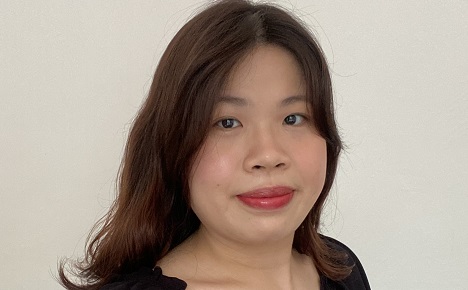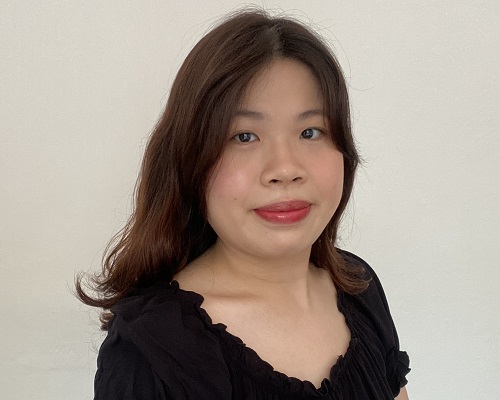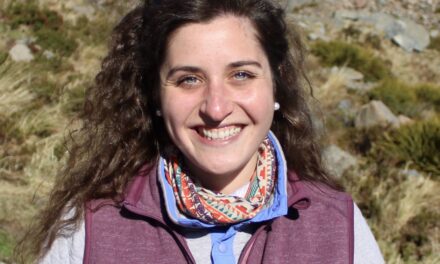Associate Editor Lisa Low: A dying woman believes she’s Jesus’s mother and can heal her fellow patients in Natalie Yap’s “Santa Maria.” Subverting the typical deathbed scene, Yap’s protagonist is lively, feisty, and judgmental, picking fights with other patients and scorning their love of expensive face cream. As the story progresses, repetitive action and language accumulate in the context of a complex mother-son relationship. “Santa Maria” not only asks us to consider the afterlife but also the supernatural and the unconventional ways we let go of life and each other.
To hear Natalie read the story, click below:
Santa Maria
Toward the end of her life she became convinced she was Mary, mother of Jesus. She went around the care center offering to perform miracles. Divya Anand tried to wave her away, Shoo shoo, crazy lady, shoo. I will cure you, she promised, placing a hand over Divya Anand’s saggy gray eyes and letting the nonsensical words fall from her cracked lips. Through me, God will heal you, sweet child of Christ. Divya Anand was Hindu, she’d had two strokes, she had no more teeth, she hated crazy ladies who touched her without permission and who prayed noisily. The nurses took her away, Come Mary, come Blessed Virgin, let’s work your miracles out in the garden instead, away from everyone else. She approached Melanie Chan, wrinkled like a raisin, doing tai chi under the sun, making noises like a violent animal. Melanie Chan still looked untouched by mortality—her daughter was an SK-II fanatic, always bringing her bottles of expensive cream that other women tried to steal. But SK-II won’t get you to heaven’s gate. Melanie Chan was an adulteress—she slept with many, many men in her youth. She promised to heal Melanie Chan. Oh, let me cleanse you of your venereal disease, she cried to Melanie Chan. The two women broke out into a fistfight; she ended up with a broken lip and Melanie Chan sprained her back. Ha, no more tai chi for Melanie Chan. The carers called for her son; he answered after six tries. Your mother is picking fights with the other patients, she’s untenable! Her son was livid. I paid good money for good care, he threatened. Underpaid Filipina nurses who wiped curdled shit for a living threatened back: Plenty of other homes anywhere. The son relented, shame and guilt being currencies utilized for free at the care center. The woman was old, senile, let her be, let her be. He offered to pay for Melanie’s Chan back brace. When he came to see his mother, she was shrouded in blue (the bedsheets a little bit stained with old excrement), and she fell onto the hard tile floor in prostration, kissing his feet. You have come to save us, you’re here! Where have you been, my son oh Lord? She was the skinniest she’d ever been. Yet her son and three large nurses peeled her from the ground and placed her into an armchair and restrained her wrists with empty pillowcases. Divya Anand shuffled past with a walker, laughing at her. She wouldn’t respond to Mum, Mum, and when her son drank water from a cup, she watched intently, waited. She believes she’s queen of heaven, they warned him. She cannot even digest milk without ending up in the ER. He nodded, he said he understood, but that was a lie. He couldn’t understand, nor did he want to. When he saw that she was finally falling asleep, her facial features softening into that of an infant’s, he cradled her head in his arms and whispered, I’m here, I’m here.
Natalie Yap (she/her) lives in Kuala Lumpur, Malaysia. She is currently at work on a story collection. Her fiction can be found or is forthcoming in Porter House Review, Emerge Literary Journal, and AAWW’s The Margins.
For more miCRo pieces, CLICK HERE












